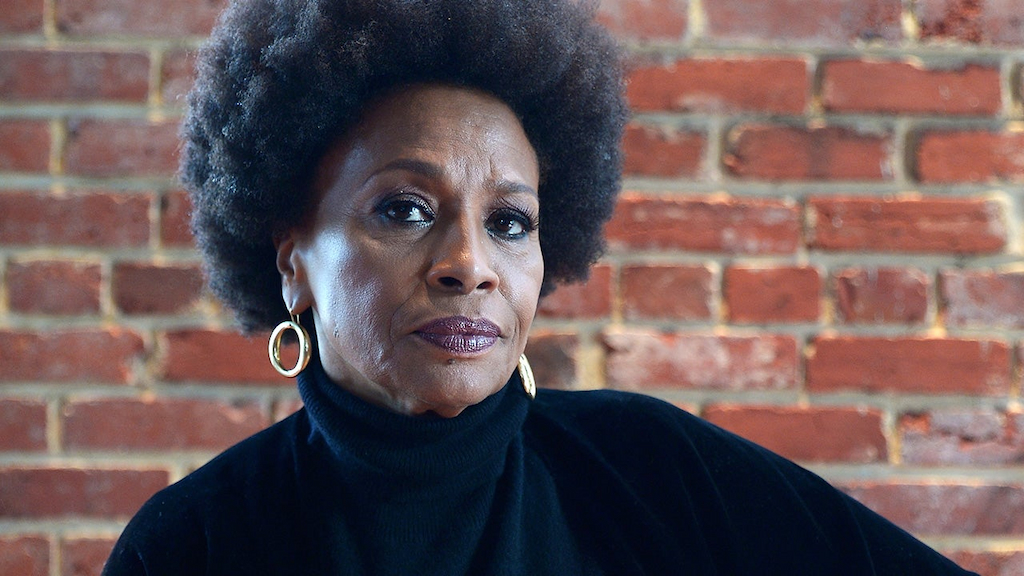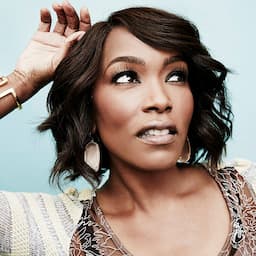Jenifer Lewis talks to ET about mother roles and new memoir.
Since making her Broadway debut in Eubie! in 1979, Jenifer Lewis has become a fixture onscreen with roles on A Different World, The Fresh Prince of Bel-Air, Girlfriends and Meet the Browns, as well as starring in films like Jackie’s Back and The Cookout. She’s perhaps best known for playing a string of iconic mothers; her onscreen offspring includes Taraji P. Henson (Not Easily Broken), Angela Bassett (What’s Love Got to Do With It), Whitney Houston (The Preacher’s Wife) and Tupac Shakur (Poetic Justice).
“I was everybody’s mama because I was a born leader,” Lewis boasts to ET. She has no qualms about the mothers she’s played, or even about taking on the roles that some of her colleagues in Hollywood may have viewed as stereotypes.
“Obviously, I’ll do anything,” she says with a laugh. “I don’t care what it is; for that kind of money, I’ll play the goat. I’m an actress, bring it! The roles that I get, I give them as much dignity as possible. What if I wasn’t playing these mothers and someone else came in and f**ked it up?”
Of course, her current mother role is to Anthony Anderson on ABC’s Black-ish as the rambunctious Ruby Johnson, which Lewis says is “the cherry on top of my career.” “Having Kenya Barris know my voice so well -- they literally just write it out of my mouth now,” she says in praise of the show’s creator and writing staff.
With a career spanning nearly four decades, one thing Lewis most certainly knows how to do is entertain the masses with her keeping-it-real, larger-than-life persona. But in her memoir, The Mother of Black Hollywood (now available from HarperCollins), the actress reveals the sadness behind her over-the-top personality.
Lewis was diagnosed with bipolar disorder at age 33, and in her book, she details her journey through the pain from not knowing why she was crying daily to extreme mood swings, sex addiction and grieving the loss of her family members and closest friends. Writing the book for a younger generation, she wasn’t expecting it to help her heal in the process.
“I wrote this book for millennials. I want you to stand up, stay up, be on it, and keep it the f**k moving. I mean that,” Lewis says. “It’s my legacy, and I wanted to throw it into the pool a bunch of times because I thought, I do not want to relive all these deaths, but you have to go there. I got to feel some things that I haven’t felt.”
With the help of journals she’s been keeping since the seventh grade, Lewis was able to recount vivid details such as talking her way out of being raped by a knife-wielding stranger in her New York apartment, working with Bette Midler and Norman Lear, being groped by her pastor in junior high school and what she calls a rude moment with Jane Pauley on the Today Show. But she says this book isn’t about outing anyone. “I didn’t write it to hurt anybody and I didn’t write it to impress anybody. I wrote it to inspire b***hes. I’m 60, I’m still working, and I’m healthy.”
Ultimately, Lewis hopes her story will help banish the stigma surrounding mental illness in the African American community. “The black churches need to start addressing mental illness. This ain’t about straitjackets and shock treatment no more. You can go and get help. Life is too hard to handle this sh*t by yourself. I don’t want to hear the sh*t that you can’t afford it; this is America, find your way. If you want to be helped, somebody, somewhere will help you; you have to want it.”
And if there’s a lesson to be found in her journey, it’s to stay candid and keep moving. “You should feel like, ‘Let me get up, the way she did. Let me keep moving, the way she did,’” Lewis says. “’Let me keep singing, the way she did. Let me dedicate my life to my dream, the way she did. Let me tell the truth and be honest, the way she did.’ All I can do for you is tell you my story, and you take what you will from it.”



